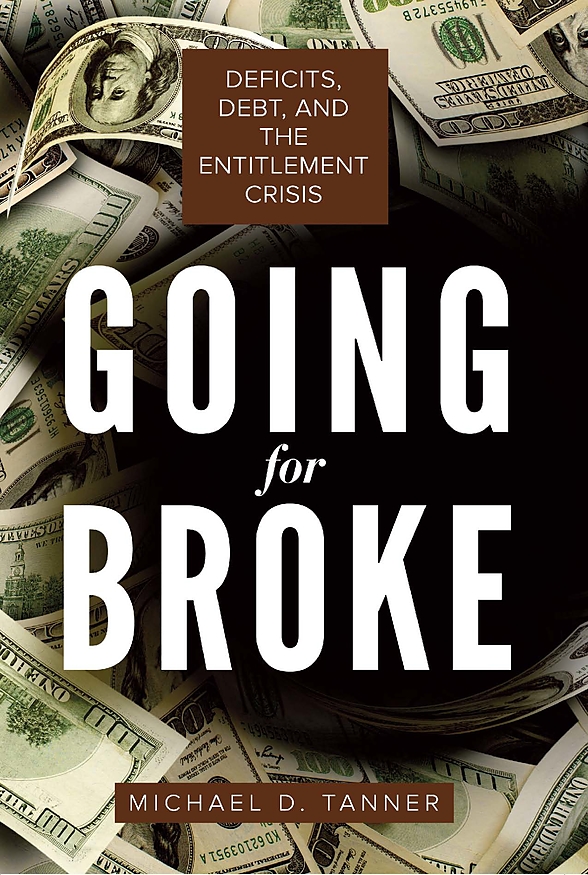 The federal government lives far beyond its means, driving the country deeper and deeper into debt. Michael Tanner of the Cato Institute helps clarify the problems created by government overspending in the book Going For Broke: Deficits, Debt, and the Entitlement Crisis.
The federal government lives far beyond its means, driving the country deeper and deeper into debt. Michael Tanner of the Cato Institute helps clarify the problems created by government overspending in the book Going For Broke: Deficits, Debt, and the Entitlement Crisis.
Just how much debt do we face? Tanner’s answer might give you heartburn.
Today our national debt is roughly $18 trillion. Let’s put that in perspective: The New York Yankees have one of the biggest payrolls in baseball. For $18 trillion, one could pay the 2014 Yankees for 86, 335 years and still have money left over for a couple of free-agent pitchers. And speaking of New York, $18 trillion could buy all the real estate in New York City — almost 20 times over. If 18 trillion one-dollar bills were stacked on a football field, they would cover the field to a depth of more than two miles.
The examples continue, then Tanner reminds us that $18 trillion covers only part of the debt, with unfunded liabilities for entitlement programs such as Social Security and Medicare driving up “true total debt” to $90.5 trillion to $130 trillion.
Tanner devotes much of the book to explaining — sometimes in a level of detail only a policy wonk could appreciate — the entitlement programs that constitute the bulk of federal government obligations and drive the debt problem. He also delivers bad news for those who think those programs are worth the costs.
Our enormous entitlement programs have two crucial recurring themes. First, they are driving the country toward bankruptcy. Second, in exchange for all we spend on them, they don’t actually do a very good job. We saw that problem with Social Security, where the program, even if solvent, provides younger workers with a return far below what they could earn through private investment. We saw it with Medicare, where outcomes appear unrelated to the amount of money spent, and the program is developing increased access problems.
If anything, Medicaid may be an even more egregious example. Observers from across the political spectrum agree that, financing aside, Medicaid delivers poor quality care. Among the biggest problems are access to care, quality of care, and improper payments and fraud.
Not mentioned in this passage — since it’s the subject of the book’s next, and longest, chapter — is the impact of the newest unsustainable entitlement: Obamacare.


